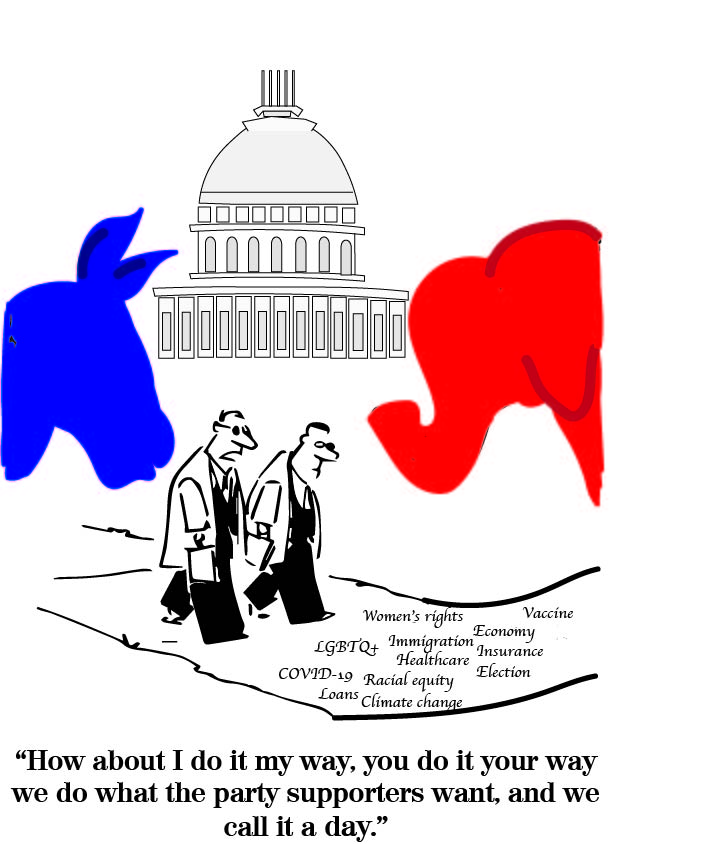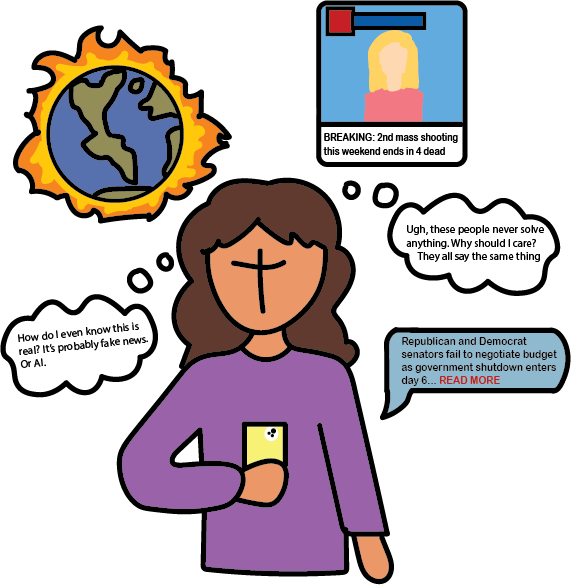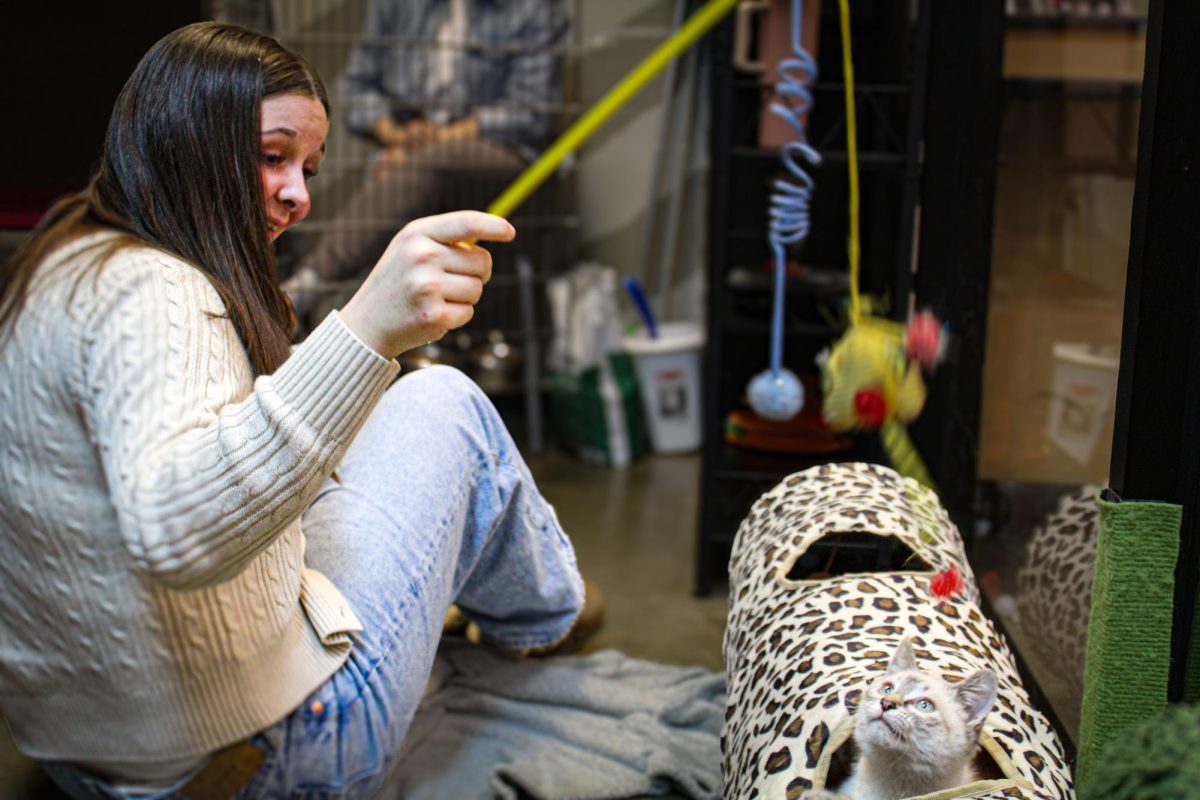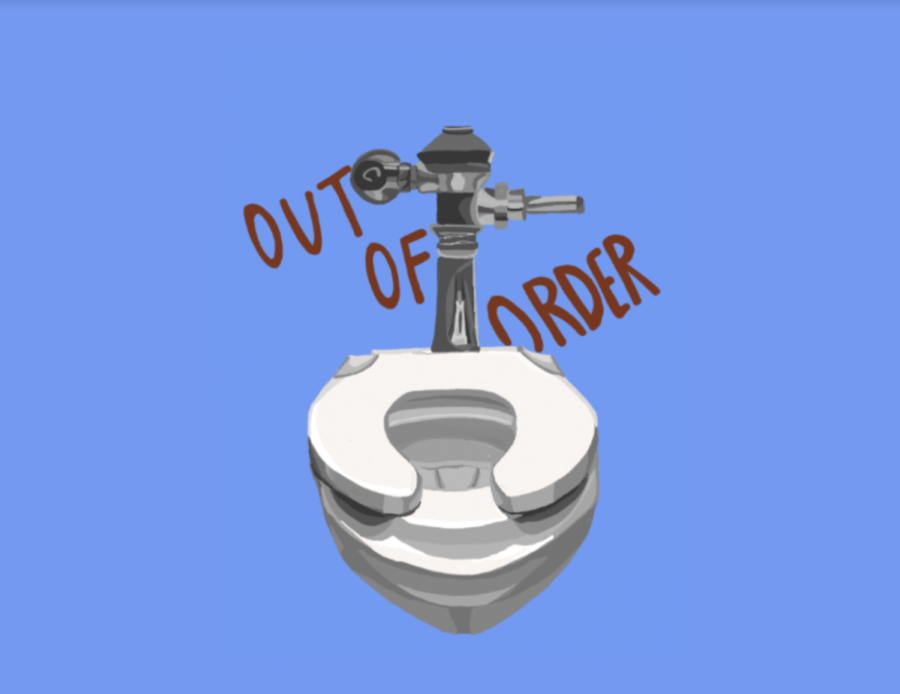For the first time ever, the Confederate flag, a symbol of the Confederates who sought to establish a new nation and preserve slavery at the time of the Civil War, entered the US Capitol doors. On Jan. 6, 2021, as a violent and pro-Trump mob invaded the United States Capitol, the country witnessed the culmination of a divided political system. The bipartisan system initially took form around 1860 as a way for the country to hear different perspectives on issues. Now, it is a structure characterized by competition, divide and conflict. At present, the Democratic and Republican parties are at the forefront of the US political stage, which leaves little room for third party candidates to gain prominence, limiting the diversity of people in office.
In certain states, voters have to list whether they prefer the Democrat or Republican party. Processes such as these have led to a continuous cycle of either a Democrat or Republican victory in elections and have become problematic for third party candidates. Media echo chambers, meaning an environment where a person only encounters information that reinforces their own beliefs, also amplify the pressure to side with either party and are part of what led to the events that occurred on Jan. 6. As a result of former President Donald Trump’s speeches, tweets, and the media, many Republican party supporters believed the 2020 election was fraudulent and were not ready to support a Democrat victory. People have become too dependent on party labels. Even independent voters are often asked by pollsters if they lean toward one party or the other. A major flaw of the bipartisan system is that voters do not wish to waste their vote on a third party candidate who is unlikely to win.
Additionally, the two party system greatly limits the diversity of viewpoints on a particular problem as the Democrat and Republican parties take very different stances on issues to stand out and gain supporters. A current example is climate change. Whereas Democrats believe this is a serious issue and the federal government is doing too little to reduce its effects, conservative Republicans seem to think policies will profoundly affect businesses and hurt the economy, so they are unwilling to back policies that will restrict business decisions. The parties are therefore stuck with certain philosophies, making compromise all the more difficult.
Although some would argue that the bipartisan system tends to support policies that appeal to a broad segment of the population, in reality, the bipartisan system is too rigid and has taken a toll on Americans. Some people are supposedly independent, but the system pressures everyone to choose a party, accepting the emotionally-charged labels assigned by the other party.
Neither party is perfect, but using elements of both can help with achieving progress and working towards the common good. People need to begin to accept and respect the fact that everyone thinks differently and try to work together to solve the country’s problems.
The main issue holding politicians back from cooperation is that they have made their party part of their identity. The media should stray away from using labels and politicians should be willing to criticize even those who are part of the party they support. The way votes are counted should be changed so the popular vote is of utmost importance. People should vote for candidates whose values align with theirs and who they believe will make a positive impact. This will help diversify people in office and alleviate the pressure to adhere to a certain party, thus promoting constructive criticism of others and compromise above all. The time has come to stop working in the interest of a particular party, and instead make a commitment to work in the interest of the people.






















